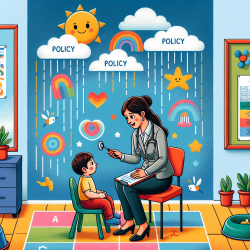Understanding the Role of Family and School in Black Youth Resilience
In a world where community violence is an unfortunate reality for many Black youth, understanding the pathways to resilience is crucial. The recent study titled "The Mental Health of Black Youth Affected by Community Violence: Family and School Context as Pathways to Resilience" sheds light on how family dynamics and school environments can significantly influence mental health outcomes for these young individuals.
Key Findings from the Study
The study utilized path analysis to explore the relationships between parent relationships, parent bonding, school climate, resilience to community violence, and mental health among 548 Black adolescents in Chicago. The findings revealed that:
- Parent Relationships and Bonding: Strong parent relationships and bonding were positively associated with resilience to adverse community experiences.
- School Climate: A positive school climate was linked to better mental health outcomes and increased resilience.
- Community Violence: Exposure to community violence was directly associated with adverse mental health outcomes, but resilience and supportive environments could mitigate these effects.
Implications for Practitioners
For practitioners working with Black youth, these findings underscore the importance of fostering supportive family and school environments. Here are some actionable steps:
- Enhance Parent-Child Relationships: Encourage open communication and emotional bonding between parents and children. This can be achieved through family therapy sessions and parental guidance workshops.
- Improve School Climate: Schools should focus on creating a safe and inclusive environment that supports the emotional and academic needs of Black youth. This includes training teachers to recognize signs of trauma and implementing programs that promote mental health awareness.
- Community Engagement: Collaborate with community organizations to provide resources and support systems that address the unique challenges faced by Black youth in violent neighborhoods.
Encouraging Further Research
While this study provides valuable insights, there is a need for further research to explore the complex interactions between environmental factors and resilience. Future studies could focus on longitudinal data to better understand the long-term effects of community violence and the protective role of family and school contexts.
For practitioners and researchers alike, the findings from this study offer a foundation for developing interventions that can significantly improve the mental health and well-being of Black youth.
To read the original research paper, please follow this link: The Mental Health of Black Youth Affected by Community Violence: Family and School Context as Pathways to Resilience










